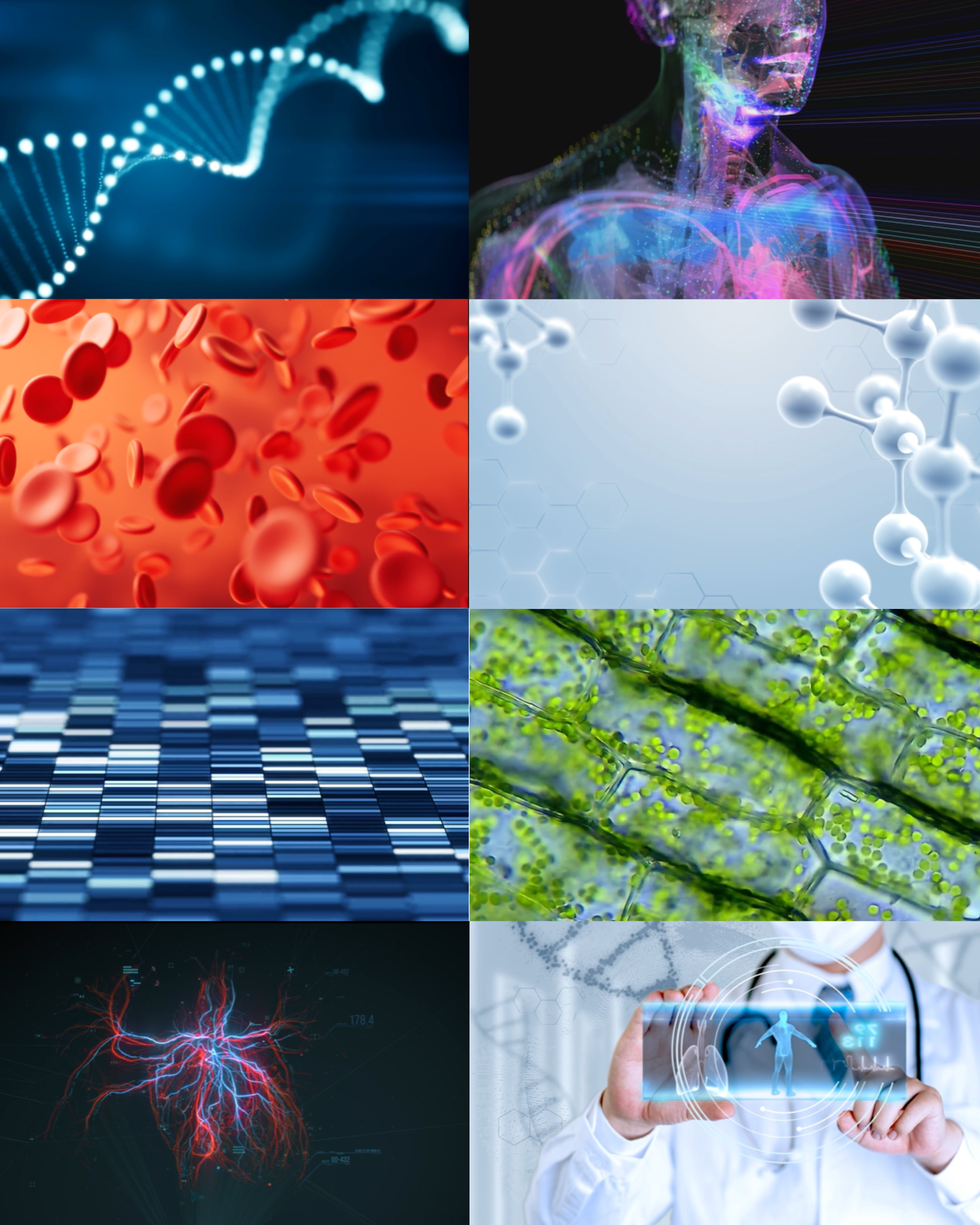APPLICATION AREAS - VERSATILE SOLUTIONS FOR YOUR LABORATORY REQUIREMENTS
LVL Technologies offers a variety of products that can be used in different application areas. From biobanking and cryopreservation to biopharma and compound management, to clinical and veterinary diagnostics – our solutions are designed to improve the efficiency and quality of laboratory processes. Our 2D-coded tubes and racks are ideal for genomics, oligopeptides, transfusion medicine, forensics, and epidemiological studies. Our products also play an important role in plant sciences, animal breeding, and nutrition. Learn more about the specific application areas and how our technologies can support your work.
Biobanking, Pathology, and Cryopreservation
The long-term storage of biomaterials from humans, as well as animals and plants, closely aligns with what is commonly understood as biobanking. Unlike epidemiological and clinical studies, this type of storage is usually employed in research projects where the research objectives are largely undetermined at the time of sampling. In this context, biobanks are often linked to institutes and centers for clinical chemistry and laboratory medicine of major hospitals and university clinics. Biomaterial samples such as blood and urine, but also tissue, collected for routine diagnostic examinations, are stored long-term for research purposes.
Biopharma and Compound Management
For the development of biopharmaceuticals, SAFE® 2D tubes are of critical importance. Compound management and compound libraries collect and store chemical substances used for high-throughput screening, for example, in the fields of small molecule drug discovery and agriculture. These valuable samples, which can number in the millions depending on the company, must not only be stored in a controlled environment but also be quickly retrievable. Additionally, the containers used and their coding must be resistant to organic substances. Pharmaceutical companies worldwide trust SAFE®.
Clinical and Veterinary Diagnostics
Clinical diagnostics are used to detect, identify, and monitor human diseases or health disorders. Precise and sensitive diagnostic methods are crucial for accurately determining a patient’s health status, which is vital for therapeutic decisions. Reliable and traceable storage of human samples is essential for the diagnostic process.
Veterinary diagnostics are crucial for animal health, identifying health problems before they can be detected by other means, and enabling faster diagnosis and treatment planning. Traditional diagnostics involve analyzing blood, tissue, urine, or stool to detect proteins, antibodies, the presence of diseases, or general health indicators. Laboratory-based tests ensure accurate, high-quality results, while point-of-care diagnostics provide real-time decisions, easing the concerns of pet owners. Here too, a secure storage solution is important to provide scientists and veterinarians with access to all relevant samples and data at any time.
Genomics and Oligopeptides
Whether for genomic sequencing kits, oligonucleotides, or other synthetic chemicals, more providers are opting for 2D-coded tubes as a solution for the logistics of small samples. Due to their ability to isolate samples, sealability, and traceability, 2D-coded tubes like SAFE® are a far better alternative to traditional deep-well plates. Additionally, the 96 SBS format stands out among all other microtubes when automation is considered.
Transfusion Medicine and Plasma Banking
Blood products are classified as medical products in many countries, meaning their production is subject to strict regulations. This means that a small portion of donor blood must be stored for several years after the required serological tests and infection marker screening to ensure that the blood donation can be ruled out as the cause in case of an infection in the blood recipient. For these retention samples, 2D-coded tubes are the preferred choice due to their storage safety, clear labeling, and space-saving size. Tubes from the SAFE® product line are also suitable for building a research-based biobank using donor blood.
Forensics and DNA Storage
In some countries, proper archiving of DNA samples is becoming an increasingly important issue in forensic science. More than in any other field, forensic work requires that samples can be identified with absolute certainty. Due to the small sample volumes and high degree of automation, tubes in the SBS format are ideal for forensic applications. The SX 300 is the ideal tube for storing DNA for forensic purposes.
Epidemiological and Clinical Studies
Epidemiological and clinical studies are conducted to determine the frequency, distribution, and causes of diseases. This means that in addition to diseases, the relevant influencing factors are also examined. For example, the goal of the world’s largest local health study is to understand the complex web of interactions between the environment, biology, genetics, and lifestyle that underlie diseases. To this end, the risk factors for the most common diseases, such as heart attack, atrial fibrillation, stroke, or dementia, are identified by studying the influences of genetics, pre-existing conditions, lifestyle, and environment on human health. Many epidemiological and clinical studies in Europe, Asia, Africa, and North America use SAFE® for their samples.
Plant Sciences, Animal Breeding, and Nutrition
Crop science is a multidisciplinary field that focuses on the research and development of crops. The definition of crop science also includes scientific knowledge and understanding of the cultivation, management, processing, and production of crops. One of the key questions in crop science is how to reliably achieve high yields. Researchers are trying to find new breeds that are more resistant to drought, heat stress, or other environmental factors that typically negatively impact the quantity or quality of the harvest. To obtain reliable and reproducible long-term data, long-term storage in 2D SBS tubes is required. This also applies to animal breeding. Today, we are faced with a growing global population. Therefore, new plant and animal breeds are needed to feed the world.





